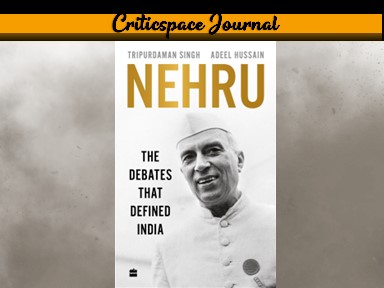
“Nehru’s charged encounters with Iqbal, Jinnah, Patel, and Mookerjee that shaped modern India“
ABOUT THE BOOK
From being elected as Congress president in 1929 till his death in 1964, Jawaharlal Nehru remained a towering figure in Indian politics, a man who left an indelible stamp on the history of South Asia. As a leading light of the nationalist struggle and as India’s first and longest-serving prime minister, his ideas shaped the political contours of the country and left an imprint so deep that his legacy continues to be debated furiously.
In life, as in afterlife, Nehru was many things to many people. Going beyond the imposed labels of contemporary discourse, this book illuminates four encounters that Nehru had with contemporaries from across the political spectrum – Muhammad Iqbal, Muhammad Ali Jinnah, Sardar Patel and Syama Prasad Mookerjee – that are critical to understanding his ideas, and his long afterlife and impress on the present.
Nehru may no longer be alive to answer his critics today, but there was a time when he pitted himself vigorously against his opponents in the marketplace of ideas, debating the most profound questions in South Asian history and decisively influencing political events. It is this intellectually combative Nehru whom we meet in this book – voicing ideological disagreements, forging political alliances, moulding political opinion, offering visions of the future and staking out the political field – a key figure in the debates that defined India.
ABOUT THE AUTHORS
Tripurdaman Singh is a British Academy postdoctoral fellow at the Institute of Commonwealth Studies, University of London. Born in Agra, India, Tripurdaman read politics and international studies at the University of Warwick and earned an MPhil in modern South Asian studies and a PhD in history at the University of Cambridge. He is a Fellow of the Royal Historical Society, a Fellow of the Royal Asiatic Society and the author of Imperial Sovereignty and Local Politics (2019) as well as the widely acclaimed Sixteen Stormy Days (2020). He lives in Cambridge, UK.
Adeel Hussain is an assistant professor at Leiden University and a senior research affiliate at the Max Planck Institute for Comparative Public Law and International Law in Heidelberg. He was born in Sialkot, Pakistan, and holds two degrees in German law (first and second state examination) as well as a master’s and PhD from the University of Cambridge. His next book, Law and Muslim Political Thought in Late Colonial North India, is forthcoming in 2022. He now lives and works in The Hague.
ADVANCE PRAISE:
‘An important contribution to the continuing evaluation of Nehru’s role in the crafting of modern India . . . this book deftly outlines the thinking and dialogue that laid the foundations of the Republic – and which remain deeply relevant and contentious today.’ –Shashi Tharoor, Member of Parliament, Lok Sabha
‘In exploring four controversies through the exchanges between Nehru and his main challengers, Tripurdaman Singh and Adeel Hussain have brought to life the intellectual vibrancy and excitement that surrounded the debates . . . Resurrecting these for today’s audiences is a public service.’ –Swapan Dasgupta, Member of Parliament, Rajya Sabha
‘Putting together Nehru’s correspondence and conversation with powerful rivals and colleagues, ranging from Jinnah to Sardar Patel, the authors have for the first time made available . . . the intense arguments that went into the making of modern India . . . ’ –Faisal Devji, Professor of Indian History, University of Oxford
‘This insightful volume foregrounds hitherto little-trodden dimensions of Nehru’s political ideology. It is likely to broach new debate on interesting issues like Nehru’s perception of Islam, Muslims and communism. Therefore, it is an endeavour to open up a new vista of understanding about Pandit Nehru’s vision which makes it an exciting read.’ –Tahir Kamran, Professor of History, Beaconhouse National University